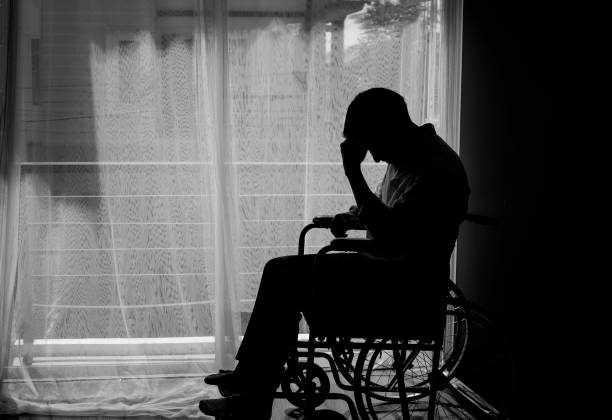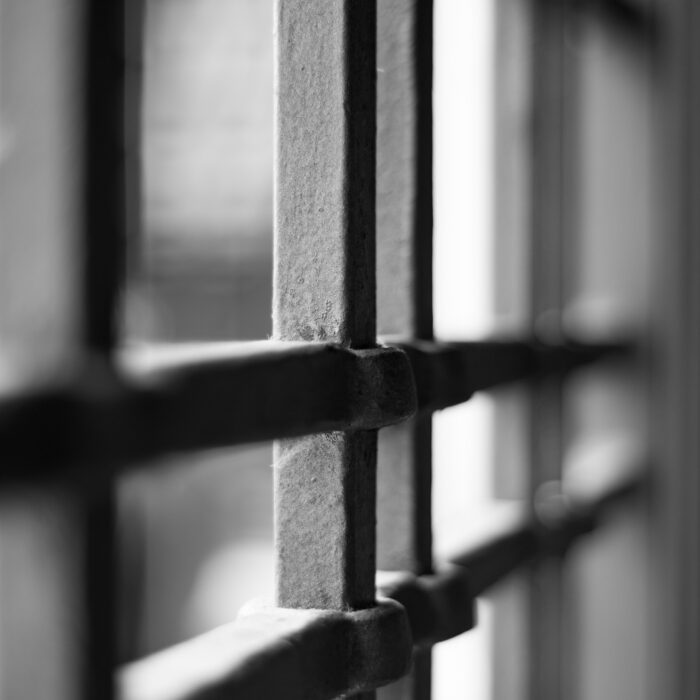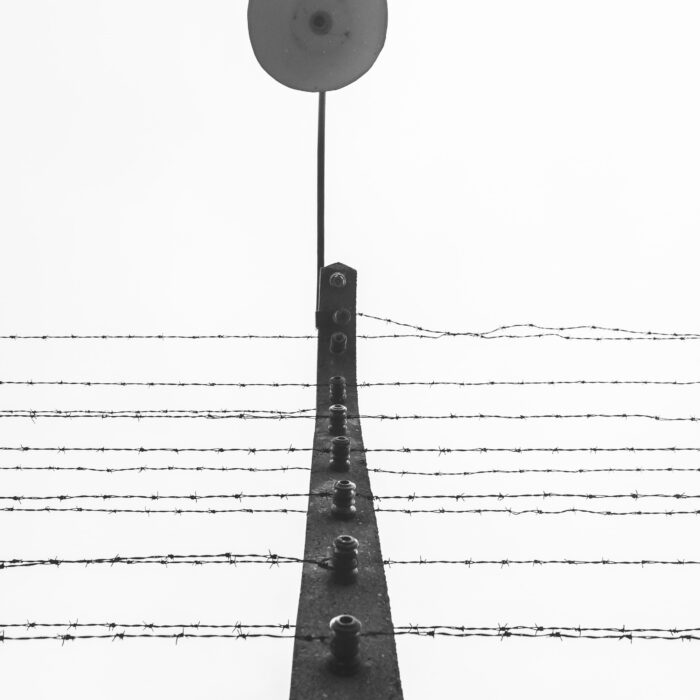You have no items in your cart. Want to get some nice things?
Go shopping
Anna’s snoring loudly in my bed, her back to me, and I’m lying on my side staring at the wall. I reach down for a glass of water I left strategically on the floor and knock over last night’s wine bottle. There’s nothing to spill, but it rolls across my uneven floor to the opposite corner of the room, and bumps into the shoebox containing my father’s personal effects.
The bottle stops Anna’s snoring in a single, sharp snort and I feel her turn toward me. “Do you want to open it?” she says through a yawn. This was why she came over last night, for moral support, but after two bottles of wine I still chickened out and we watched a movie, nothing about which I now remember, and fell asleep. If it were Anna, she would’ve opened it right away, but then Anna’s dad isn’t a mind-fucking alcoholic. I’ve been to her parents’ house. Her dad cooks and her mother compliments my clothes and jokes that she’d borrow them if she thought they’d fit.
“I don’t know yet.” I say.
“It might be good?” Anna puts her hand on my arm. She’s waking up now and her voice is already getting louder and more high pitched, like an engine warming. My voice is always the same, day or night.
“I said I don’t know. Jesus.”
“Okay, I’m sorry.”
My head hurts. I look for the actual glass of water and drink half, then hand the rest to Anna. She says thanks and as she drinks her hair falls over her face where she leaves it. It’s knotted at the front but looks perfect. She hands the glass over and I lie on my back and balance it on my stomach. Anna says nothing, and I know it’s ridiculous because I snapped at her, but I’m hurt because she’s stopped trying. I want to accuse her of not caring, but I manage to resist and am congratulating myself for it when, from somewhere, I say: “Do you think you could ask before you borrow a shirt for the night? I might want to wear it the next day.”
“Sure,’ she says, calm and understanding as she gets out of bed and takes off the faded Funkadelic teeshirt with the two massive holes. She starts dressing from the pile of her clothes at the bottom of the bed, and I feel nervous sick.
“Okay, I’ll open it.”
She turns around to look at me and sits back on the bed, smiling. “You want me to bring it over?”
“No it’s alright,” I say, getting up.
It’s April and the floor’s a little cold under my feet, then under my butt as I sit cross-legged before the box and slide it toward me. Anna stays where she is.
Inside is mostly crap: a contact book with barely any numbers in it; a ticket stub from a show he played at the height of his only-ever-modest success; a few photographs including one of my mother, which I find both annoying and creepy because they were separated before she even died. Then at the bottom, underneath the other stuff, there’s a cassette tape. The label looks like it’s been stuck on where an old one’s peeled off, and in black Sharpie and his handwriting is my name.
“Are you okay?” Anna asks because I’m not moving.
“Yeah, I found this.”
She comes over to look, “You think it’s a message or something?”
“I don’t know.”
“I can leave if you want to listen to it?” Her voice has become annoyingly soft. The only thing I want less than for Anna to leave is to hear my father’s voice. I can already hear excuses and accusations bubbling up to the surface he’s made a half-assed show of smoothing over, knowing he’ll have the last word: I know I was never the best dad, but you…
I remember when I was eleven and sad because of something that happened at school. I think maybe a friend had moved away. My father and I were driving and I wasn’t saying much. We didn’t say a lot in general. “You know, most kids fall out with their parents for a while when they’re teenagers and they make up when in they’re in their 20s. That’s pretty normal.” he told me, keeping his eyes on the road, “but I wasn’t so young when we had you, and you’re probably not going to get that chance. You should make more of an effort.” He was right about one thing. We didn’t get the chance.
“I really don’t want to listen to it.” I say.
“Okay, you want me to get some coffee?”
“Look,” I say, “I get I’m being a bitch and not a lot of fun to be around. Maybe I should just call you later?”
“I didn’t say you were being a bitch.” She squats down to me and puts her arms around me, and I bristle. “It’s really okay to feel angry. I think that’s meant to be pretty normal.” She isn’t holding me tight but it feels like someone’s squeezing my chest way too hard. I try to stay still but jerk away involuntarily, and she looks genuinely upset.
I think that when I was a kid my mum used to hug me, pick me up, stuff like that. Whenever I’ve visited Anna’s house her parents jumped on her, and then on me too. Even her dad hugs me, and he isn’t even a little bit weird about it.
“I’m sorry,” I say without sounding it, “I really think maybe you should go.”
“Okay,” she says, “love you.”
*
After Anna leaves I feel horrible. I go to the kitchen and make a cup of tea. My housemate’s away for the month and there isn’t any milk so I have it black with sugar. One of my last memories of my mother is making her a cup of tea by myself. I’d have been seven or eight. She made this huge fuss and I felt so proud. Then my father told me I’d forgotten the milk. I remember so clearly how bad I felt, but when I think of it now I can’t tell if he was mocking me or trying to give advice. His voice was flat like mine. Sometimes I say things to people meaning to be kind and they come out wrong, or I sound sarcastic when I’m not. This happens a lot with Anna.
I have a sudden, surprising urge to hear his voice, like it’ll be comforting somehow even if he says shitty things. I get the tape from the box and hold it for a moment, feeling for something other than moulded plastic, and then I realise I don’t have anything to play it on. It’s funny to me how I hadn’t thought of this before. When I was a kid, tape players were everywhere. My dad used to have one in this room in our house where he practised – he called it his study. One time he bought me a Prince cassette from a charity shop and put it on there, and I started dancing around the room. From then on I used to carry it in there sometimes, and he’d let me put it in and push the button, but I always had this nervous habit of fiddling with things, and after a while he’d do it himself because I’d stop the tape accidentally. One time when I was dancing I knocked over his bass and he got insanely mad at me and I didn’t go in again for a long time, only once or twice more before my mother died, and then never again. When I was a teenager I had a CD player with a tape deck built into it, but when I left home I did it quickly and most things stayed behind.
*
I try my flatmate’s room in case she has a machine but the door’s locked, so I try to think of friends. The best candidate’s Tay, who’s really more a friend of Anna’s than mine. That can be said for 95% of the people I know. He’s into music and weird old tech-stuff and he lives in the neighbourhood, but he’s also kind of a dick. I told Anna I thought this once.
“Why?” she asked, “I think he’s really sweet.”
“I feel like he just tries too hard,” I said, hearing and disliking myself.
I’m not going to ask Tay. I pick up my phone and the screen says I have several messages. I ignore it and start composing something I can copy/paste to people:
Hey!
Hey,
Hey, weird question:
Hi, sorry to ask, but
Often when I’m going to text people I get nervous, I think because of what it means if they don’t reply, so a lot of the time I just don’t. When I see people it’s usually because Anna invites me along. She always invites me along.
I put my phone away and lie down on the bed, staring at the shoebox – a fucking shoebox, that’s it. That and the old car that he hadn’t driven in years because he was too drunk. I have to pay to get it scrapped.
I bring the box onto the bed and take its contents out again. I only looked at the top few photos on the pile before, but this time I keep going. There aren’t many – not for a lifetime – and a couple are of me, both taken by my mother. One of them I recognise because it used to sit in her kitchen after my parents separated and I lived at her house. But I know this can’t be the same copy, because when she died it ended up at my grandmother’s. It used to hang above her stairs next to a picture of my mother, and I used to look at them together on the rare occasions my father took me to visit. He always stayed in the car. This copy he must’ve had made while she was still alive.
There’s another, much older photo at the bottom: a troop of boy scouts, and I recognise him in it right away. We have the same eyebrows, same cheekbones, same intense look. He must be about ten in the photo, and though he’s part of the group he’s stood a little apart, like he’s scared of the others. They’re all smiling these big over the top smiles, and he isn’t. I bring the picture closer, so that me and my father are face to face, and I think how strange it is that I should look so much like a ten year old boy. But then I think of his face as a man with its webs of broken blood vessels, and the thought that we have anything in common makes me angry, so I put the pictures away.
I take out the cassette and lie back on the bed, plugging my fingers into its two holes and twisting. When I go in opposite directions one way the tape gets loose and falls out, and I hold it up in front of the window looking for something decipherable. Twisting the other way the tape gets tight and I feel it strain inside. For some reason I’m tempted to keep going, to let it snap. It doesn’t matter anyway, because I can’t hear anything without a player, and I daydream about a machine that could do the same for people: run them together synchronised and smooth, nothing too tense or too slack, making clear what’s unreadable.
Suddenly I feel lonely, but I don’t want to call anybody. I know people who think about sex not as something inherently pleasurable, but more like a way to relieve their horniness. Most of the time that’s how I feel about being lonely. I think I enjoy seeing people, but it’s complicated. That’s why I love living in the city. You can see a bunch of faces and talk to none of them, and you still somehow feel like you’re in company. There’s a coffee shop nearby that always has a crowd, so I put on some proper clothes and go out.
*
Outside is beautiful, I think. One of those wet, almost-warm April days when it constantly feels like it’ll rain but doesn’t. There’s a shine to the pavement and trees and both feel lush and alive. I’m happy about this because I feel desiccated, and after making my order at the coffee shop I stay by the counter and hold the water jug in my hand, filling and refilling a glass until it’s mostly orange slices and my belly hurts but I feel more awake. I’m near the bottom of the jug, watching two women with the pushchair-equivalents of humvees glance at me like I’m a freak, when someone taps my shoulder and I nearly spit.
“Edie!”
It’s strange. Sometimes I forget my own name.
“Oh, hi Tay.”
“How’re you doing?”
“Yeah okay.”
“I heard about your dad. I’m really sorry.”
“Oh right, thanks.”
“Sorry,” he says, “I know it’s really annoying how people talk to you after somebody dies.”
What do you fucking know about it. I want to say, but don’t. “Yeah well, I guess it’s hard to know what to say.”
“Right? Like when my parents died I was just this fucking angry little kid for years and didn’t get that at all.”
“I didn’t know that about your parents.”
“Yeah.”
For a moment he breaks eye contact, which is rare for Tay. Usually he looks right at you, which I find both unnerving and annoying. I take the opportunity to look at him, and he actually has a pleasant face: tan, framed well by glasses and curly black hair. I don’t find him at all attractive, but it’s not a bad face – comforting, somehow.
“But you’re so… not angry?” I say,” You’re one of the most upbeat people I know.”
“Intolerable isn’t it?” he laughs and looks at me knowingly, raising his eyebrow, and I make an embarrassed smile.
“Hey,” I say, “sorry to ask, but would you have an old cassette player I could borrow, just for the afternoon? You’re into that kind of thing right?”
He laughs, “I don’t know why you’re sorry, but sure. Just let me get something here and we can go pick it up.”
*
Tay’s flat is close. On the way I ask about his parents, because to my surprise I’m interested. He talks a bit and asks about mine, and I tell him as little as I can. He asks me why I want the tape player and I tell him I found an old unlabelled cassette and I’m curious. He says that’s cool. When we get inside he invites me into the kitchen and goes to his room to find the player.
“It’s got batteries in it,” he says, handing me the machine, “I’d offer you coffee but you’ve got some.”
“It’s fine,” I say, “Thanks a lot.”
“You know,” he says at the doorway, “I always thought of you as Anna’s intimidating friend, but you’re pretty sweet. If you ever want to hang out – you know, as pals – let me know.”
“Sure.” I make a face without meaning to, then worry I’ve offended him.
“No, I mean it. I would like to hang out with you.” He emphases the words, mocking me but gently, and I realise that I wasn’t really listening to what he was saying before, and suddenly I feel kind of warm and not terrible, and I smile. “Yeah,” I say, “that’d be nice.”
*
Back home I push the cassette into the machine and it’s satisfying how neatly it fits into its place. I hover my finger over the play button, but I can’t press it. I’m scared of hearing his voice, of what he’ll say, of that being the end of it, so I pick up my phone and call Anna.
The phone rings a long time and I’m about to hang up when she answers. I don’t know what to say and regret calling.
“Did you listen to it yet?” she asks, and I’m surprised that she knows this is what I’ve been thinking about all day, and cares.
“Not yet.”
“I think you should.” and I can hear her catch herself, like she’s waiting for me to snap at her, and I feel shitty.
“Yeah I think you’re right, I’m just scared.”
“Yeah I know. I love you. You know that?”
“Yeah I love you too.”
“No.” She says, firm but warm, like you want a parent to be, “you never listen to good things people tell you. I love you, really I do, and I care about you. I’m here.”
I try to let this soak down to somewhere it’ll sit and stay, but I don’t feel a lot. I thank her, tell her I love her too, which I think I do, and say I’m going to go and listen to the tape.
*
I don’t know how long my finger hovers over the button before I push it, but eventually I take a deep breath, like before a cold shower, and whether in anger or disappointment the first thing I hear makes me want to cry.
Fucking Prince.
For a moment my teeth are clamped shut and I don’t think I can move. Not even a fucking message. Nothing. But then it isn’t any worse than what I was expecting, and after a minute I start to feel a little relief that at least there are no excuses, no accusations.
Then a new song comes on and I start to listen to the tape, or it’s something like listening. I just let it in, and as I get to my feet I realise I’m smiling, and for a second I can see myself as a little girl. Then I’m dancing around my room, and the song’s warping from where I twisted the reels – or maybe just from time – but underneath it all I think I hear my dad.

Ned Carter Miles
Ned Carter Miles is a writer and radio producer based in London, England. He is UK Desk Editor of ArtAsiaPacific Magazine and regularly creates radio programmes for the BBC and Audible. His stories have appeared in the Oxford Magazine, The New York State Writers’ Institute journal 'Trolley,' the Wrong Quarterly, and the Pinched, as well as anthologies by Sampson and Low Press and Reflex Fiction. He has recently won the Creative Writing NZ Flash Prize, come third in the Writers' HQ Quarterly Flash competition, and been shortlisted for prizes by Flash500 and Reflex.
- Web |
- More Posts(1)




